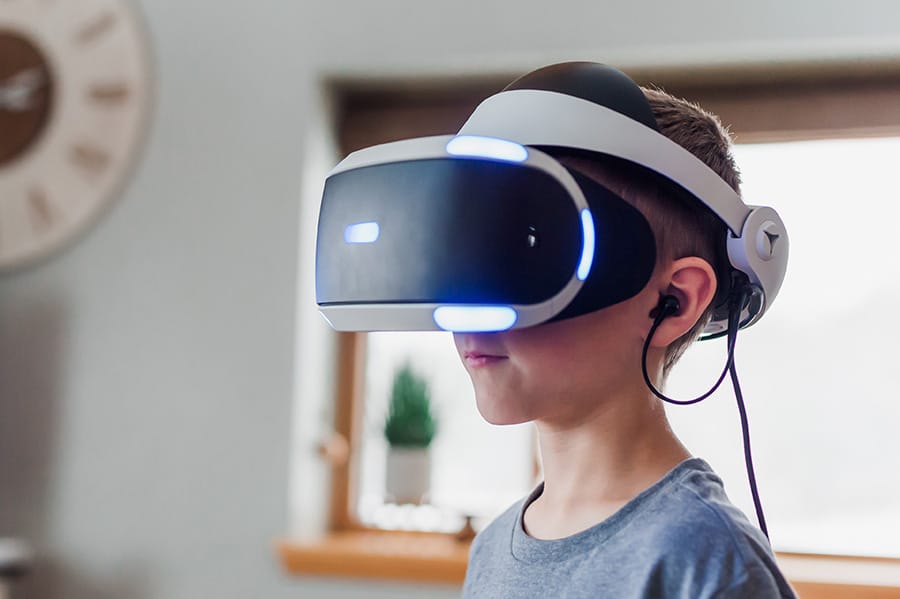NHS trials smart goggles to reduce time-consuming admin for nurses

A new leading-edge NHS pilot is set to give community nurses on home visits more time with patients through the use of high-tech smart goggles.
As long as a patient consents, the virtual reality-style headset can transcribe the appointment directly to electronic records, reducing time-consuming admin for nurses.
Staff will be able to share live footage directly with hospital colleagues to get a second opinion, avoiding the need for further appointments or hospital admission, and includes thermal imaging to help assess how wounds and injuries have healed.
The glasses, which also help nurses look up their next appointment that day and check how long it will take to get there based on live travel updates, will be trialled in Northern Lincolnshire and Goole from this week (22 August 2022).
This latest technology-focused initiative from the NHS follows a raft of innovative schemes that have already been introduced in a bid to free up clinician time, allow more patients to be seen by health and social care staff, and reduce costs across the health and social care sectors.
For example, the NHS has been trialling wearables for patients with Parkinson’s, so that doctors can remotely monitor their condition. The information the smartwatch collects is relayed to doctors who can look for signs that their medicines need changing, improving quality of life, or that make other interventions such as physiotherapy that can stop the condition from worsening.
Another large push within the NHS is the use of virtual wards to enable the remote monitoring of patients. This is designed to free up vital hospital bed space while still giving patients access to a healthcare professional, should they need it.
Commenting on the latest smart goggles initiative, Minister for Health Maria Caulfield said: “Health and care research is crucial to transforming our health service and ensure the NHS is able to deliver world-class care.
“These new high-tech goggles have the potential to revolutionise the way community nurses carry out home visits – reducing admin and increasing the accuracy of diagnosis and treatment.
“Yet again, this technology is testament to the UK’s innovation and our front-footedness in the discovery of ground-breaking research which can help us beat the COVID backlogs.”
Community nurses are estimated to spend more than half of their day filling out forms and manually inputting patient data, according to the NHS.
The pilot will help to expand their capacity, giving them more time for clinical tasks such as checking blood pressure, dressing wounds, and assessing patient’s relevant health needs.
NHS England awarded the trust £400,000 to test the technology as part of a wider innovation project, which is set to fund a further 16 pilot projects over the coming months.
NHS Director for Transformation Dr Tim Ferris added: “Some of the best innovations come from local solutions and so through this project, NHS staff can test what works for them and what provides the best possible care for patients.
“These new smart glasses are the latest pioneering tech and really show us what the future of the NHS could look like – they are a win-win for staff and patients alike, freeing up time consuming admin for nurses, meaning more time for patient care.”
The technology will be rolled out this summer in areas run by Northern Lincolnshire and Goole NHS Foundation Trust, with local patients informed about the project and explicitly asked if they consent for the technology to be used and their data to be recorded.
The software used in the smart glasses, dubbed A.Consult, was developed by Concept Health, a company founded by a GP.
If they agree, patient data will be transferred securely to the electronic patient record system.
Clinical Nurse Specialist Becky Birchall said her team were thrilled to be the first in the country to take them on community visits.
“We’re so excited to be the first NHS team in England to try the smart glasses out and can’t wait to take them out on our community visits to see our patients,” Becky enthused.
“We currently spend a considerable amount of time writing up our visits to patients and these cutting-edge goggles will really help to cut down the time we need to keep for admin, supporting us to care for our patients.
“The glasses have a thermal imaging feature, which I think will be particularly useful for us when we are examining wounds and these features are going to really help us provide the best possible care for our patients.”
The pilot is one of 17 projects across 16 healthcare organisations to receive a share of £6 million of the Digital PODAC Unified Tech Fund – set up by NHS England to unlock the potential of digital technologies to support the delivery of care within the ambulance and community health service sectors.

